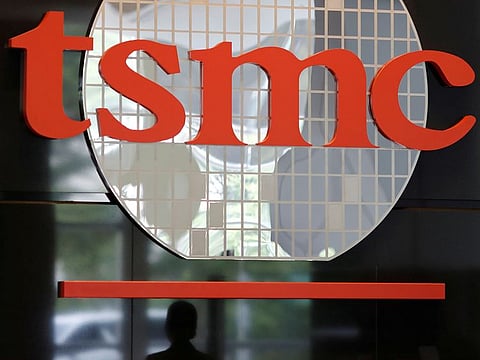Trump's whiplash on China leaves chip industry spinning
The biggest concern now is how China will retaliate

Trump administration efforts to secure high-tech jobs while piling pressure on China sparked hope then despair this week across the US chip industry, one of the country's biggest export engines.
Late Thursday, Taiwan Semiconductor Manufacturing Co., the world's largest contract chipmaker, said it will build a $12 billion plant in Arizona. The deal suggested US companies might be able to supply TSMC free from export restrictions - a rare easing of tensions in a trade war that's shaken the sector for more than a year.
That optimism only lasted a few hours. By Friday morning, the Commerce Department unveiled new rules that require any chipmaker using US technology to get a license before they can sell to Huawei Technologies Co. The US has labeled the Chinese company a national security threat, an accusation it has denied.
"This rule may create uncertainty and disruption for the global semiconductor supply chain," Semiconductor Industry Association Chief Executive Officer John Neuffer said.
The biggest concern now is how China will retaliate. During previous rounds of action against Huawei, Beijing cautioned US companies it was building a list of "unreliable entities" that interfere with Chinese businesses. Such threats are a major concern for the industry because China is the biggest semiconductor market. "The risk of escalation and retaliation remains the broader structural worry," Sanford C. Bernstein chip analyst Stacy Rasgon said. "There has been some ominous news flow around China activating their so-called 'unreliable' list in response, and we don't know what the next US move might be."
On Friday, the Global Times - a Chinese tabloid run by the flagship newspaper of the Communist Party - reported that Beijing was ready to initiate a series of countermeasures, without elaborating.
The Philadelphia Stock Exchange Semiconductor Index rallied 2.8% on Thursday as news of the TSMC chip plant circulated. After the Commerce Department rules came out on Friday, the industry benchmark fell 2.2%.
Chip-equipment makers Applied Materials Inc., Lam Research Corp. and KLA Corp. were among the biggest losers. The new license requirements focus on machinery from these companies, along with chip-design software sold by Cadence Design Systems Inc. and Synopsis Inc.
The ultimate target is Huawei, though. The U.S. had already imposed restrictions on US tech companies selling to the Chinese company. But the chip industry shrugged off some of the limitations, or worked around them by using overseas production facilities to make parts for Huawei with less than 25% U.S. content. Huawei also bought from non-US companies that make products based on US technology.
TSMC was part of this strategy because it does most of its manufacturing in Taiwan and continued to churn out semiconductors designed by Huawei's HiSilicon division, helping the Chinese company weather the worst of the US blockade.
The latest license requirements close these loopholes and give the Trump administration another tool to pressure Huawei, along with more leverage in broader trade negotiations with China.
It could backfire on the U.S. chip industry, though. Limiting TSMC's access to US machinery and software would slow the development of new semiconductor production techniques. That will have massive, direct consequences for some of the largest U.S. companies.
Apple Inc.'s iPhone chips are made by TSMC. Qualcomm Inc., which designs chips and modems that power most handsets running Google's Android software, also relies on the Taiwanese manufacturer. Advanced Micro Devices Inc. and Nvidia Corp. are customers, too. A weaker TSMC will mean less-capable devices from these companies in a few years.
The deal for a new TSMC factory in Arizona won't help much because the facility will make semiconductors based on existing technology, not the next cutting-edge generation.
The Arizona announcement raised the industry's hopes in a different way, though. It suggested a potential quid pro quo with Donald Trump's White House: Create high-skilled technology jobs in the US and we'll give US companies the licenses they need to supply all the production machinery and software TSMC wants. During a conference call with media on Friday, US State Department official Keith Krach denied that.
Apple and other major US tech companies will want more certainty because there aren't many good alternatives to TSMC. Its main U.S. rival, GlobalFoundries Inc., has given up on advanced manufacturing and Intel Corp., the world's largest chipmaker, mainly manufactures for itself. Its attempt to become a so-called foundry for external clients has failed to gain major customers.
"This is certainly the most significant salvo in the trade war as it pertains to tech since the Huawei restrictions were enacted last May," said Chris Caso, an analyst at Raymond James & Associates.
Sign up for the Daily Briefing
Get the latest news and updates straight to your inbox


